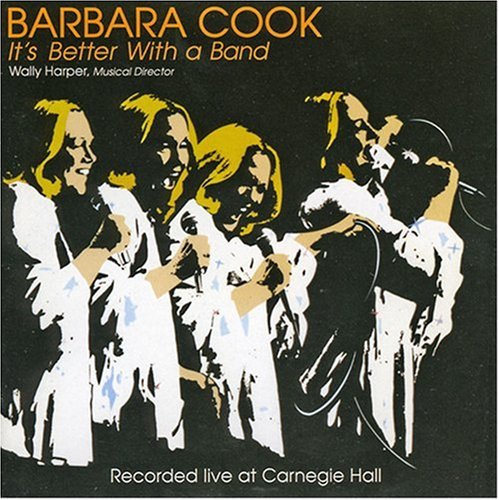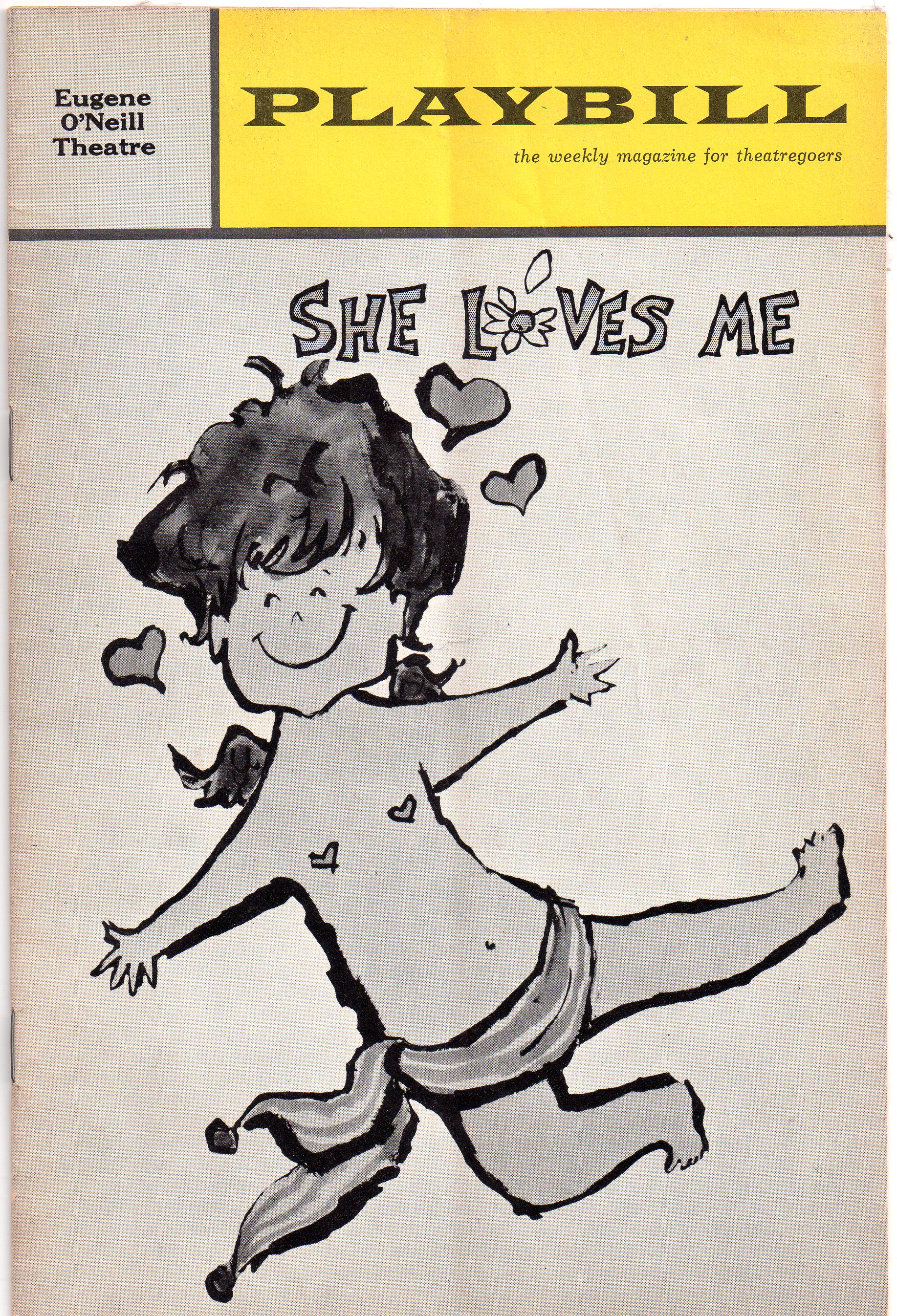As we approach the end of 2010 as well as the first decade of the 21st century (There’s no such thing as Year 0 in our calendar), I’ve been looking back on the ten years of theatregoing I have had and have compiled a list of some favorite moments:
January 9, 2001 – It was my third Broadway show, but the sublime revival of Kiss Me Kate was the first show in NY that made me feel as though I were ten feet in the air. Stylish, elegant and irrepressibly funny, I went with my high school AP English classes (one section was reading The Taming of the Shrew). Starring Brian Stokes Mitchell and Marin Mazzie (whom I adored from the original cast recordings of Ragtime), the revival (at the Martin Beck). I can remember every detail. We gathered after school, caught a train and headed right to TKTS (my first time at the booth) then dinner at TGI Fridays. I sat with my favorite English teacher, Fran Schulz, and we just laughed and laughed. We were breathless by intermission and practically needed oxygen by the end of act two. It’s become the standard by which I judge all musical comedy revivals. The London company was preserved for PBS telecast and DVD, but that incarnation doesn’t live up to my memories of this enchanted evening.
July 9, 2002 – Noises Off! I didn’t think I’d see the revival, which had recently won a Tony Award for featured actress Katie Finneran. However, while roaming the local mall on school break with a friend, I saw there was a contest for free tickets to the production. For the hell of it, I just put my name on the piece of paper and tossed it into this vat of thousands of slips. You can imagine my surprise when I got a phone call telling me how to arrange my free tickets. Knowing that the revival’s original cast would be departing, I arranged for the final week of their run. I’m glad I did; it was one of the most hilarious productions I’ve ever seen. It was my first time seeing Patti LuPone, Faith Prince, Richard Easton and T.R. Knight onstage. On top of it, it was also the first time I stage-doored a production and as a result I fell in love with Katie Finneran, who showed me great personal kindness and graciousness in a brief moment. Noises Off was the funniest production I’d seen until The Norman Conquests in 2009.
November 27, 2003 – Barbara Cook Sings Mostly Sondheim. I’ve long been a huge admirer but had never seen her perform live. Then I received word that she’d be in my very town while I was on Thanksgiving break. I had the CD of the 2001 Carnegie Hall concert, which featured Malcolm Gets. However, in Peekskill, it was just Barbara and her three man band. I sat in third row center and just basked in the performance. Her nuance with the lyrics, her warmth and humor, the depth of her feeling as she delved into the lyrics. The pinnacle, though, was hearing Cook sing “Ice Cream” her trademark number from She Loves Me. In the original key, no less. Chalk that one up to musical theatre zen.
May 27, 2004. I’ve talked about this day before, as it remains one of the most important of my life. Without the final performance of Gypsy with Bernadette, I wouldn’t have such marvelous friends like Noah and SarahB (and the extended family as a result). It was my first time at a Broadway closing (I’ve now done 14) and it was the first time I ever went backstage at a Broadway house. It was also the first time I saw Bernadette onstage, and in spite of what you see in print these days, her performance was well received by critics and audiences alike. And she should have won the damn Tony.
April 18, 2005. My first opening night. The Light in the Piazza at the Vivian Beaumont Theatre. (To date I have done 7 opening nights). It was the start of an obsession with a superlative musical, which I ended up seeing 12 times throughout its run. There have been many other important theatregoing experiences of my life, but none that have been this magical. Victoria Clark’s performance as Margaret Johnson was one for the ages, and Kelli O’Hara was equally sublime as her daughter. Adam Guettel’s score was one of the best of the decade and it’s a shame we haven’t yet heard anything new from this brilliant composer/lyricist.
December 4, 2007 – August: Osage County opening night at the Imperial. I’d never gotten more dressed up or cared more about my appearance than this particular opening, as I was a guest of Noah. Because of the union strike, the opening had been delayed and by my great good fortune I was allowed to attend. It was a lot of fun standing in the lobby with Sarah, Kari and Sally people watching people as the stars made their entrance into the lobby. But what was even more amusing was the fact that there were celebrities who were there because they just had tickets for that performance – and celebrities who brought celebrity friends as plus-ones. But nothing prepared me for the searing power of Tracy Letts’ play with a dynamite cast including Deanna Dunagan, Amy Morton and Rondi Reed. After the second act, I was in need of air. Saw this three and a half hour play 7 times.
Tuesday, June 12, 2007. My first post-Tony performance. We were in attendance after Christine Ebersole and Mary Louise Wilson won Tonys for their brilliant work on Grey Gardens. I had seen and loved the show earlier in its Broadway run, but the audience at this show made it something to behold. The applause at the top of the show threw the actresses off of the pre-recorded track (charmingly saved by Wilson) and Ebersole received the only second act standing ovation I’ve ever seen upon her entrance as Little Edie just before stopping the show with “The Revolutionary Costume for Today.”
March 27, 2008 & April 4, 2008. Two glorious revivals of American musical classics opened: Gypsy at the St. James Theatre, South Pacific at the Vivian Beaumont. I was in attendance for both and just adored both productions. I’m of the school that loved both Bernadette and Patti, so comparisons are a moot point there. However, this second revival was aided considerably by the sublime Tony-winning performances of Laura Benanti and Boyd Gaines. Over at Lincoln Center, Bart Sher directed what is probably the best production of a musical I’ve ever seen. Superbly cast, thrillingly sung and acted – and that orchestra of 30. I couldn’t ask for a better week at the theatre (interspersed between the two were favorite flops Juno and 1600 Pennsylvania Avenue/A White House Cantata).
May 11, 2008. Two-fold. Brunch at Joe Allen’s and No No Nanette at City Center Encores. Each in itself was an event worth rejoicing, but the combination made it a day for the ages. It was the first gathering of the Bloggers Who Brunch (as I like to call our gatherings). At that point, I had only been blogging for seven months and it was the first time I was aware that there were other people whom I didn’t know that were reading what I had to write! It was the start of many wonderful friendships that I continue to cherish wholeheartedly. The afternoon was spent SarahB in my first visit to the TLC before we took in the fabulous production of Nanette, which is still the best of the best when it comes to the Encores productions I’ve seen – and the only one I think deserved a Broadway transfer. The performances were all top-drawer (esp. Sandy Duncan and Beth Leavel), the choreography was sublime as were the costumes and orchestrations and… well everything. The evening ended at Seppi’s afterward with many of the folks from brunch, all of us smiling and singing “I Want to Be Happy” until the wee hours.
March 15, 2009. I had seen Angela Lansbury make her Broadway return in Terrence McNally’s Deuce opposite Marian Seldes and I would see her sublime portrait of Madame Armfeldt in the revival of A Little Night Music. But there was something extra-special about her Tony-winning performance as Madame Arcati in Blithe Spirit. I never would have imagined Lansbury would have such a Broadway renaissance, but am so grateful to have been here to witness it. As Arcati, Lansbury was an utter delight and continued to become even more entertaining as the run progressed. She nailed every laugh, gesture and indignant expression. And watching her improvise her spirit dance around the Condomine living room was worth the price of admission. This opening night was like something out of a 50s movie: tie and tails, elegant evening gowns and a party at Sardi’s. We maintained our own mad-cap party of sorts on the street and gleefully applauded the Liz Ashley as she got into her car (“I’m not in the show!”)
May 16 & July 26, 2009 – The Norman Conquests. I had been out of the country for the birth of my nephew when the announcements and the marquee went up and was a little surprised to see the play’s logo at Circle in the Square upon my return. I confess, I knew very little about Alan Ayckbourn’s trilogy of plays. But on a whim, I decided to take in a Saturday marathon of all three. It would become one of the most personally satisfying theatrical experiences of my life. A brilliant ensemble, impeccable direction by Matthew Warchus made these plays the funniest dramas or the saddest comedies I’ve ever seen. I was aching with laughter. I loved it so much, I had to be there for the final marathon which only cemented its place in my estimation. The ensemble was brilliant, but Stephen Mangan’s turn as Norman remains a personal favorite of all time.
September 18, 2009. I only knew of The Royal Family from its place in theatrical lore, but was excited to see the play at Manhattan Theatre Club. Sarah and I attended this early preview and were in awe. Jan Maxwell owned the stage as Julie Cavendish, in a sublime study in comedy. I also just adored Rosemary Harris as the aging matriarch, whose eleven o’clock moment took my breath away both times I saw the show. But more than the production itself, it was the way it made me feel – I loved the Cavendish dynasty and reveled in their love of all things theatre and would have loved to have been a member of the extended family.
December 12, 2010 – The final performance of The Scottsboro Boys. The performance was brilliant, as I knew it would be. However, it was the audience that surprised me this time. Before the show started, the audience gave composer John Kander a spontaneous full-house standing ovation – a gesture I’ve never seen in my ten years of theatregoing. At the curtain call, Kander toasted the late Fred Ebb, librettist David Thompson toasted the real-life Scottsboro Boys and director/choreographer Susan Stroman toasted the entire audience.
Every trip to the theatre is a memory for me, some good and some bad. (The Philanthropist, Bye Bye Birdie, The Ritz, Next Fall… but why dwell on the negative?) So here’s to the next decade and all the wonderful theatre it will bring.



